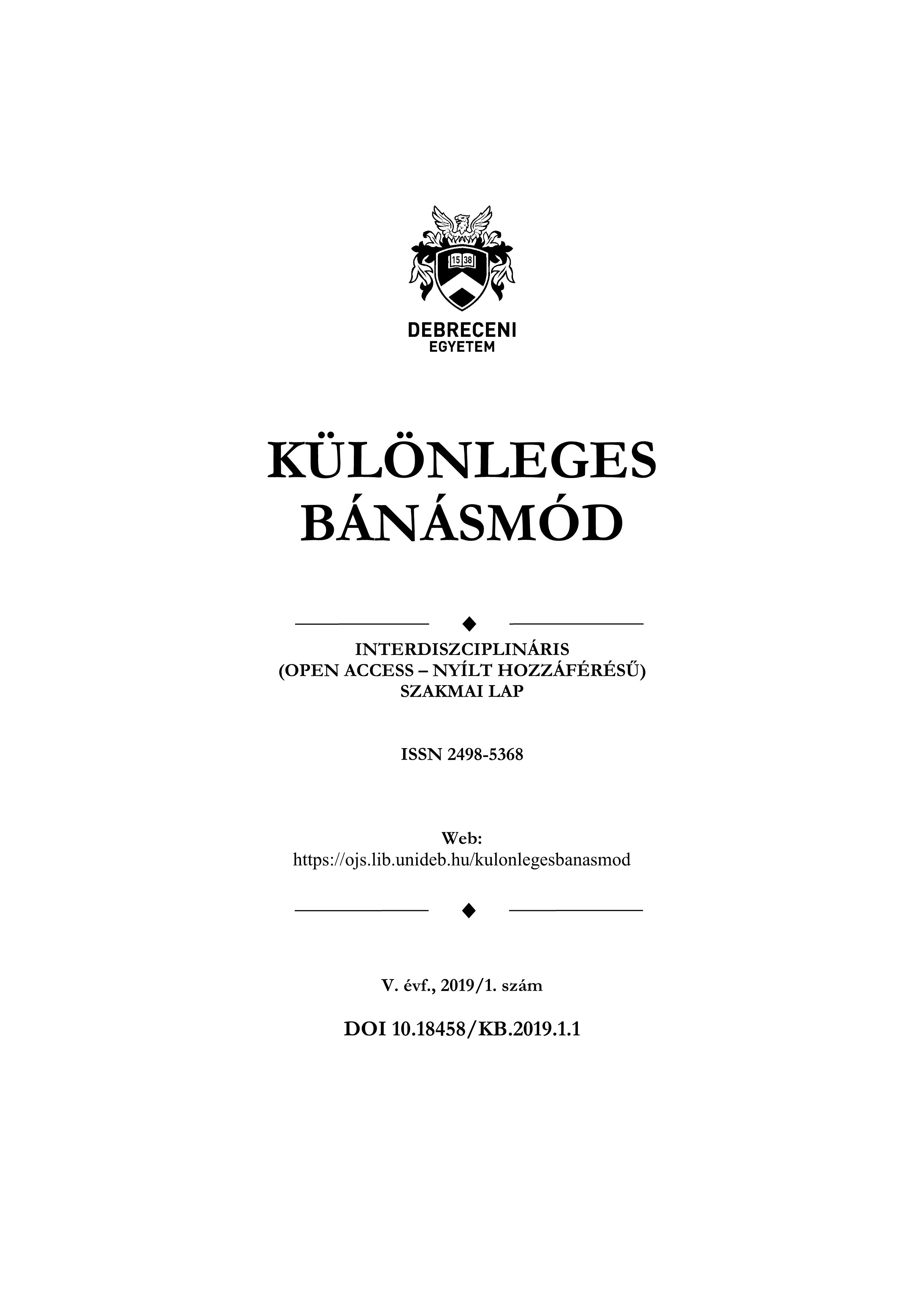CONNECTIONS BETWEEN SOCIODEMOGRAPHIC CHARACTERISTICS AND ATTITUDES TOWARDS EMPLOYEES WITH DISABILITIES
Author
View
Keywords
License
Copyright (c) 2019 Emese Balázs-Földi

This work is licensed under a Creative Commons Attribution-NonCommercial-NoDerivatives 4.0 International License.
How To Cite
Abstract
Since the annexation to the European Union, exceptional attention has been directed to equal opportunities and equal treatment of disadvantaged social groups in Hungary too. The Hungarian state tries to ensure the first and foremost with legal tools. It is, however, not enough to result in lasting changes in the attitude of society. Personal experiences, as well as, positive messages transmitted by others can produce a positive effect on the development of inclusive approaches. With respect to sociodemographic characteristics (e.g. gender, age, school qualification) investigations into this field suggest different research results. The questionnaire data collection took place in three districts of Hungary. The research was aimed at questioning two test groups, on one hand, the employees of social institutions who mainly deal with disadvantaged persons, on the other hand, the residents of the given districts, who have the knowledge and approach of an average citizen. The ingenuity of the research is put down to the fact that in Hungary there had never been researching to explore the attitudes of social employees. A total of 747 persons filled in the questionnaires, out of which 408 employees in social institutions and 339 district residents. This present study discloses the deeper connections of the research results which are observable between the two test groups’ attitudes to persons with disabilities and sociodemographic characteristics. Its significance is crucial in identifying the characteristics of the colleague playing an actual role in the integration who, as a reference person, with his own personal involvement can promote the integration of disabled persons into workplace communities. In the research of attitudes three well-distinguished clusters were outlined, which were named as follows: accepting, uncertain/indifferent, rejecting. The study investigates what kind of sociodemographic characteristics the residents, and social workers who belong to the three clusters have. Do people who belong to the same cluster posses similar attributes in both test samples? What kind of attributes has the residents and social workers got who show a higher level of acceptance? According to the findings of the research, the attitudes of the district residents differ in age, school qualification, and personal experience, whereas in the case of the social workers the difference in attitudes depends on age and school qualification.


 https://doi.org/10.18458/KB.2019.1.7
https://doi.org/10.18458/KB.2019.1.7